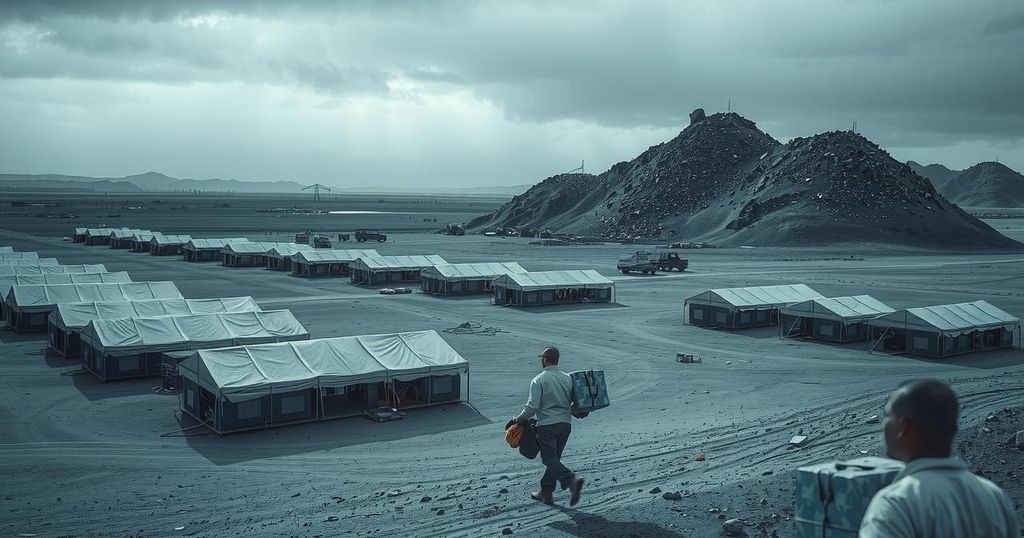Ongoing humanitarian crises are reported in Gaza, Yemen, Sudan, DRC, Somalia, and Ukraine, characterized by civilian casualties, lack of resources, and escalating needs. Efforts are underway to provide aid despite significant obstacles including violence and limited funding, underscoring the urgent requirement for humanitarian access and political solutions.
The UN Office for the Coordination of Humanitarian Affairs (OCHA) reports severe civilian casualties from ongoing strikes in Gaza, with a blockade restricting essential supplies for over seven weeks. Recent Israeli air strikes have led to significant fatalities, many of whom are children. Appalling living conditions persist, with scarce food, water, and healthcare access, while trauma among civilians intensifies without mental health support.
Gaza’s humanitarian situation is dire, where food supplies are dangerously low. Recent screenings revealed more than 80 cases of acute malnutrition among children, doubling previous numbers due to the blockade hampering nutrition aid. Local health facilities face operational challenges, with many being partially functional or completely destroyed, risking further public health issues.
In Yemen, ongoing air strikes have worsened conditions for civilians, particularly in areas like Al Hodeidah. Humanitarian partners are responding with increased support, but funding remains critically low with only about 8% secured of the needed $2.5 billion. The cycle of violence exacerbates the humanitarian crisis, emphasizing the need for political solutions alongside urgent financial assistance.
In Sudan, mass displacement from North Darfur has raised alarming humanitarian needs. The UN reports extensive civilian casualties due to ongoing violence, particularly in El Fasher and Tawila. Humanitarian access challenges hinder response efforts, but plans to deliver aid are underway, aiming to reach over 40,000 affected people, despite logistical difficulties.
The Democratic Republic of the Congo (DRC) faces grave violations against children, including forced marriage and recruitment by armed groups amidst ongoing conflicts. Schools have been occupied by armed groups, depriving thousands of children of education as violence escalates. Efforts are being made to enable safe returns for displaced families, but security and basic services remain inadequate.
Somalia is reeling from flash floods affecting nearly 30,000 people, killing at least four. The floods follow a prolonged dry spell, worsening humanitarian conditions. Authorities are urgently seeking emergency support for shelter, sanitation, and food assistance, while funding limitations hinder response efforts.
In Ukraine, ongoing attacks are endangering civilians as drone and glide bomb strikes occur across multiple regions. Critical infrastructure suffers damage, further complicating the humanitarian situation. UN agencies and partners are providing essential aid, including emergency meals and psychological support to affected communities, though needs continue to rise amidst the ongoing conflict.
The humanitarian crises across Gaza, Yemen, Sudan, DRC, Somalia, and Ukraine reflect severe conditions affecting millions. Key challenges include ongoing violence, lack of essential supplies, and deteriorating health and sanitation systems. The need for immediate aid and political resolutions is critical to prevent further deterioration of these situations. Humanitarian organizations are calling for increased funding and unimpeded access to affected areas to deliver necessary support to populations in distress.
Original Source: www.unocha.org






